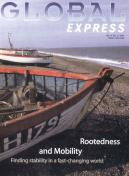 |
IN NAGALAND
IN NAGALAND
living every second
Nagaland is recognised as a
state of India. However, racially, culturally and historically the Nagas are not Indian, nor were they ever part of the ‘Princely States of India’. Prior to British rule, the Naga ancestral domain covered not only parts of India, but also parts of Burma (now Myanmar). When the British took over the area, after strong resistance from the Nagas, they added the new ‘Naga Hills District’ to their empire. What followed in the decades to come was a division of these lands into smaller administrative units under two nation states, India and Burma. Just as the British were about to withdraw from the Indian sub-continent in 1947, the Nagas declared their independence. This was not recognised, leading to serious conflict between the Nagas and the Union of India. In 1963 the state of Nagaland was formed, leaving more than half of the Naga areas and the majority of the tribes outside of it. The conflict has continued ever since.
The arrival of American Baptist missionaries in the 19th Century also continues to influence the present situation. They converted the Nagas to Christianity and introduced Western education and medical care. The force of modernisation, as well as the ongoing conflict for recognition as a nation, has taken its toll. What remains is an unstable society torn apart by corruption, drugs, alcoholism, and the loss of indigenous values and culture.
Towards the end of 2000, I had hit a rut. I was studying first year university, doing a course I was starting to question, and my plans for the summer had fallen through. As writer Henri Nouwen puts it, I was in a state of ‘spiritual dryness’, questioning and doubting everything I believed in and thought I stood for. I was wondering what—if anything—was ‘truth’ in the world around me. An invitation came to work with an international team in Nagaland, helping to run workshops on ‘Managing Conflict Creatively’. I had no idea how I would fit into this picture, or what I had to offer the team; I knew little about Nagaland and the nature of the conflict there, but something inside me said, ‘yes’.
During a cease-fire in January, a group of us were allowed to enter with special permits. The first two-day workshop was held in Shillong. Twenty teachers, social workers and other community leaders participated. The second was a four-day residential workshop in Dimapur, with teachers and principals from around Nagaland.
The workshops focused on practical and creative ways to deal with personal and inter-personal conflict. The aim was to train teachers so that they could introduce the ideas into schools. The hope is that, by teaching children to deal with conflict, they will grow up less likely to resort to drugs and/or violence to deal with their problems.
The participants’ conviction and hope for the future was truly inspirational. Our facilities were limited—electricity completely unreliable, no mosquito nets for the many who slept on mattresses on the floor—yet such was their belief in us and what we had to offer, that they had come. It was a singularly humbling experience.
We had meals with many people in their homes, laughing and singing and sharing. I ran games and drama workshops with youth groups and school groups, one of which numbered fifty. (Had I been told I would do this at the same time last year, I would have laughed.) I also sang some of my own compositions and shared a little about my background. There was a keen awareness of, and interest in, the Australian Aborigines and their situation.
It’s hard to know where to begin and where to end when I talk about my experiences there. We met people who had been through intense hardship and pain, yet were full of love and generosity. It meant so much to them that we were there—and cared enough to listen—that anything else was a bonus.
Something I miss now is the need to live every second of life in faith. The first step had been to believe in the ‘yes’ within me, that Nagaland was where I was being called. There, everything we take for granted in the West—from electricity to running water—can cut out at any time. After all our planning and organisation as a team, we could only place the outcome in God’s hands. In the West, where we can take life itself for granted, it is easier to believe that we can control and steer our own course.
As for my own ‘spiritual dryness’, I believe God was calling me to something deeper. Challenging me not just to talk about change and honesty, about purity and unselfishness and love, but to truly live it. When people asked me why I had come to Nagaland, I had to be honest. In a society where trust has been shattered, I had to speak the truth and pray that God would give me the words to speak that ‘truth’ they were looking for.
Now that I am back at university, I have tried to continue the deeper challenge God has issued, to practise what I preach. Life is so much more simple and free without these contradictions within me, and I am a more whole (and sane) person because of it.
On one of my final days in Nagaland, a friend said, ‘Maria, in a few years’ time I can see you doing great things’. And for the first time, I was believing it.
Maria Lancaster, Australia
|













